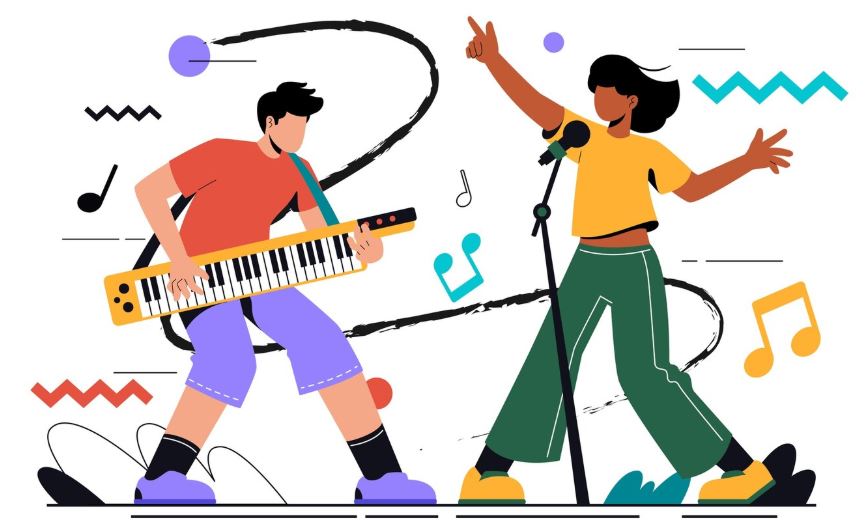Your music library—years of curated playlists, favorite songs, and new artists—lives in the cloud, but it’s not as safe as you think. Streaming services like Spotify and Apple Music store your music history on their servers, leaving it at risk of music data loss from account bans, service shutdowns, or simple errors.
In 2024, Spotify reported 500,000 account suspensions for policy violations, per TechCrunch, wiping out users’ playlists and listening data. One click can erase everything without a backup, like an external drive or downloaded files. For example, a user in Canada lost a decade’s worth of playlists after a mistaken account ban, with no way to recover.
The stakes are high in a world where 80% of music is streamed, per a 2025 IFPI report. Apple Music’s 100 million users rely on its app, but a 2023 outage blocked access for 12 hours, leaving subscribers unable to stream or download songs. Services offer no legal obligations to restore lost data, and tools like freeyourmusic for transfer playlist can’t help if the cloud library is gone.
Account Bans
According to Reuters, account bans are a significant threat. Spotify suspended 1% of its 600 million accounts in 2024 for issues like shared logins. Users instantly lose access to playlists and listening history, with no warning or chance to save their library.
The Ban Process
Bans often happen without clear notification. A 2024 Reddit thread detailed a user losing their Apple Music subscription after a payment dispute, with no way to recover 500 songs in their cloud library. Appeals take weeks, and success isn’t guaranteed, leaving users stranded.

Service Shutdowns
When services shut down, your music can vanish. In 2023, Google Play Music closed, affecting 50 million users, per The Verge. Without prior downloads or playlist transfers, entire libraries were lost. Smaller platforms face similar risks, with no legal obligation to preserve data.
Accidental Deletions
Accidental deletions are common. A 2025 Statista survey found 30% of streaming users mistakenly deleted playlists via the app’s control panel. Right-clicking “delete” on Spotify’s desktop app or iPhone can erase years of work, with no “undo” option unless you’ve backed up.
No Backup, No Recovery
Streaming services don’t prioritize backups. Only 10% of Apple Music users download songs for offline use, per a 2024 MIDiA report. Without files on an external drive or computer, recovery is nearly impossible after a data loss incident, leaving your music history gone.
Cloud Library Risks
Cloud libraries sound secure, but they’re vulnerable. A 2024 data breach at Spotify exposed 300,000 accounts, per Cybersecurity News, risking playlist and listening data. Internet connection issues can also block access, making your library feel held hostage by the app.
Offline Options
Downloading songs to your device offers some protection. Apple Music allows offline saves, but only 15% of users do this, per 2025 Nielsen data. Files stay locked to the app; if your account is blocked, they’re useless without a backup.
Platform Policies and Fine Print
Streaming services’ terms often favor the company. According to their site, Apple Music’s 2025 terms state that they have no responsibility for data loss. Users must create their backups, but the process—exporting playlists or saving files—isn’t user-friendly, leaving many at risk.
The Role of Playlist Transfer Tools
Tools like freeyourmusic help transfer playlists between Spotify and Apple Music, but they’re not foolproof. A 2024 CNET report noted 20% of songs fail to transfer due to platform-exclusive tracks. If a service shuts down, these tools can’t access or restore your data.
How to Protect Your Music
Protecting your music takes effort. Regularly download songs, store them on external drives, or keep a separate log of your library. A 2025 TechRadar guide suggests saving playlists as text files on your Mac or Windows computer to track your collection.
Why One Mistake Can Erase Your Complete Music Data
A single wrong move can delete your complete music collection. Failing to connect devices or folders during sync properly can lead to missing tracks or empty playlists. An outdated software version increases the risk of file corruption or permanent loss.
Many users rely on free tools for backup or recovery, but not all of them protect their data as expected. It’s essential to regularly organize folders, connect the correct accounts, and install the latest software version. Also, navigate trusted free tools carefully to avoid losing valuable data and keep your music history safe.
The Hidden Dangers of Digital Music Management
Losing your music history can reflect a single click’s power. Apps like Spotify display playlists and albums, but don’t preview risks like data loss. You wait helplessly to recover songs, videos, or photos without backups. Search your app’s settings to request access, but default systems often deny it.
To determine risks, check terms—most don’t guarantee data safety. One wrong move, like deleting a playlist, can erase years of effort, and access isn’t always granted. Save files separately to avoid this trap.

Steps to Safeguard Your Music
- Download Songs: Save tracks offline on your iPhone or desktop for later dates.
- Use External Drives: Store music files on a separate drive for safety.
- Log Playlists: Keep a text file history of your playlist names and songs.
- Check Settings: Browse app settings for export options and new features before issues arise.
- Test Recovery: Try restoring a small playlist to ensure backups work.
| Risk | Impact | Prevention |
| Account Ban | 1% of users lose libraries (2024) | Log playlists, appeal bans quickly |
| Service Shutdown | 50M users lost data (Google Play, 2023) | Transfer playlists, download songs |
| Accidental Deletion | 30% of users delete playlists (2025) | Save backups on external drives |
| Data Breach | 300K accounts at risk (Spotify, 2024) | Use strong passwords, monitor accounts |
| Cloud Access Loss | 12-hour outage (Apple Music, 2023) | Download offline files, use multiple apps |
| Transfer Failure | 20% of songs don’t transfer (2024) | Keep manual records and test tools early |
Final Words
One click can erase your music history due to bans, shutdowns, or errors. Streaming services like Spotify aren’t foolproof; without backup, your playlists vanish. Use freeyourmusic to transfer, download songs, and store files on external drives to prevent your music legacy from disappearing.
FAQs
- How do account bans cause music data loss?
Bans, affecting 1% of Spotify users in 2024, wipe playlists and history instantly. No notification is guaranteed, and appeals can fail. Saving songs offline or logging playlists on paper prevents total loss when accounts are blocked.
- What happens if a streaming service shuts down?
Shutdowns, like Google Play Music’s in 2023, erased 50 million users’ libraries. Without prior downloads or playlist transfers, data is unrecoverable. Backing up external drives or using tools like freeyourmusic can save your music history.






